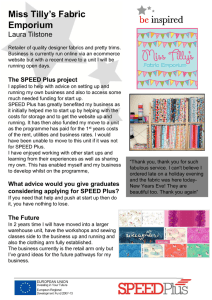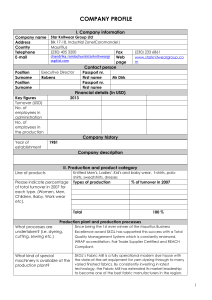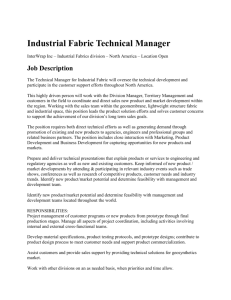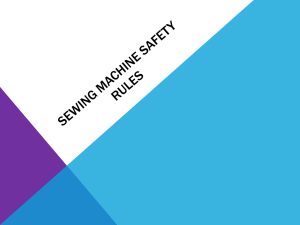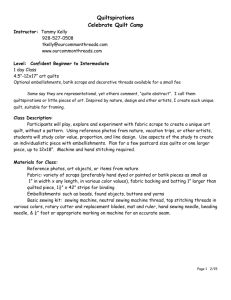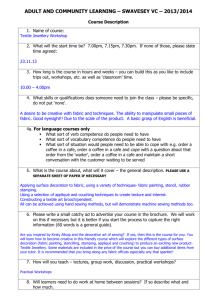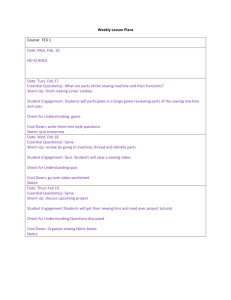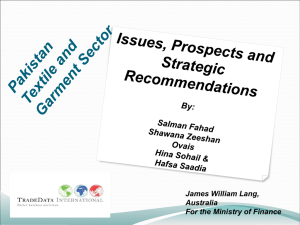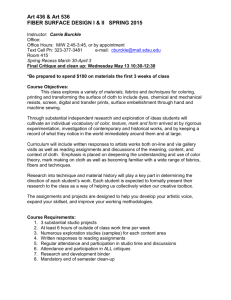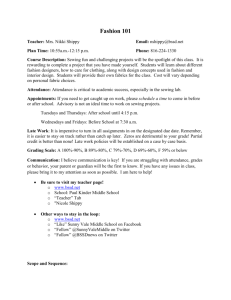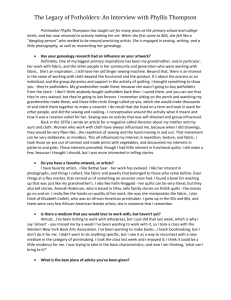GCSE Textiles Equipment and tools PPt 2
advertisement
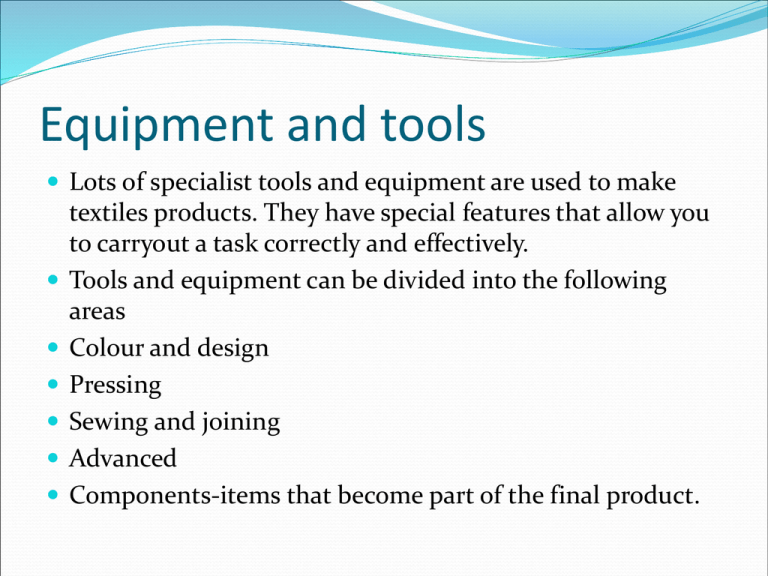
Equipment and tools Lots of specialist tools and equipment are used to make textiles products. They have special features that allow you to carryout a task correctly and effectively. Tools and equipment can be divided into the following areas Colour and design Pressing Sewing and joining Advanced Components-items that become part of the final product. Colour and Design Equipment Batik pots are pots that melt wax for Batik. Tools called tjantings are used to draw with the hot wax on to the fabric. Screen printing is used to put patterns on fabric. A screen with a special mesh is placed over the fabric. A tool called a squeegee is then used to push the colour through the holes in the mesh onto the fabric. Fabric pens and crayons can be used to draw on fabric and then the design is ironed on the reverse to set the design. The fabric can then be washed at 40C. Pressing equipment Irons are used for pressing garments and also for finishing them such as creating creases. A heat press is a machine that can transfer printed designs from specialist paper onto fabrics. It can also be used to pleat fabrics and create special effects. Sewing Machines There are different types of sewing machines that are suited to different tasks. A standard sewing machine is used to join fabrics and do simple embroidery. It has limited functions. An embroidery machine is similar to a standard machine but with extra features. It can create lots of decorative stitches. Sewing Machines A computerised sewing machine is an advanced sewing machine with many features. It is controlled by a computer interface and can produce designs that are digitised and sent to the machine by a computer. An overlocker is a specialised sewing machine used for joining and finishing fabrics. It gives seams and hems a professional finish. It can also be used for adding decorative edges to fabrics. Knitting machines Knitting machines can create garments and textiles products that are patterned or textured. They can be linked to a computer to speed up manufacture. There are different types of weaving looms that are used to produce fabrics Hand looms Ground looms Backstrap looms Frame looms Non machine based equipment Dress makers mannequins are used to obtain the correct size and fit for a garment. They can be adjusted to different measurements. Scissors come in many shapes and sizes. They each have a different purpose such as pattern cutting and pinking. Pinking shears have serrated edges for finishing off the edges of fabric to prevent fraying and to produce decorative edges. Non machine based equipment Tape measures are used for measuring people, fabrics, garments and patterns. They can be curved easily making them suitable for textiles. Embroidery frames are used to hold fabrics in place. They can be used for hand and machine embroidery.
